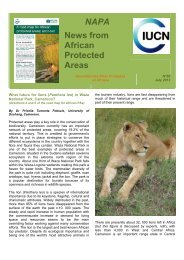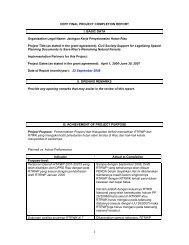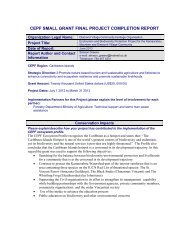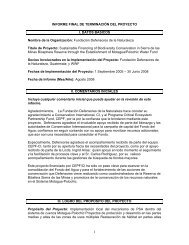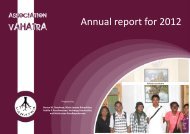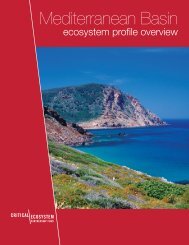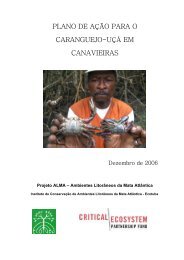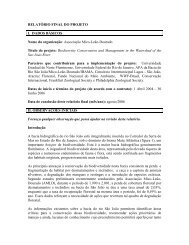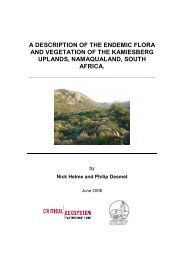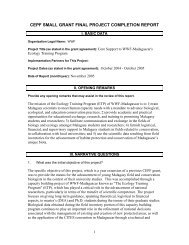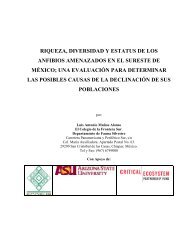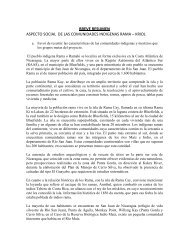English - Critical Ecosystem Partnership Fund
English - Critical Ecosystem Partnership Fund
English - Critical Ecosystem Partnership Fund
Create successful ePaper yourself
Turn your PDF publications into a flip-book with our unique Google optimized e-Paper software.
oads became impassable by 4 by 4 and the project had to be held until weather conditions and<br />
roads improved. CEPF were informed of this delay by email on the 15/9/09. However, the delays<br />
in fieldwork had repercussions in terms of both delaying and limiting the time available for data<br />
analysis and report production. This project did not have its own vehicle and therefore relied upon<br />
sharing vehicles allocated to other consultants working on other projects. Due to the distances<br />
between different project sites it was difficult for the consultants to easily reconcile their needs,<br />
often resulting in further delays in fieldwork.<br />
Other lessons learned relevant to conservation community:<br />
Change in the attitude of the local communities especially the primary resource users towards<br />
hunting for and trade in wildlife requires a relatively long-term conservation investment as<br />
confirmed by this project. At the Nimba Mountain in Guinea where a preliminary phase of work<br />
aiming a delineating the dynamics of hunting and piloting alternative activities to provide proteins<br />
and income to the primary stakeholders was undertaken prior to the current CEPF funding<br />
pledge, it was relatively easy to consolidate and expand these initiatives to other localities.<br />
In Sapo National Park in Liberia, it became clear when studying the successes and failures of<br />
past livelihood interventions in the region that projects were frequently implemented without a<br />
clear and nuanced understanding of the social, cultural and economic environment in which they<br />
were being implemented, or without the framework in place to ensure longer term sustainability.<br />
Problems identified ranged from no provisions made to support market access for goods<br />
produced during the intervention, to the provision of equipment with no accompanying training as<br />
to how to operate it. While there is appreciation that often it is difficult to leverage funding for<br />
baseline and scoping studies, this study highlights the importance of a detailed and community<br />
based project planning process in developing a successful and sustainable project.



